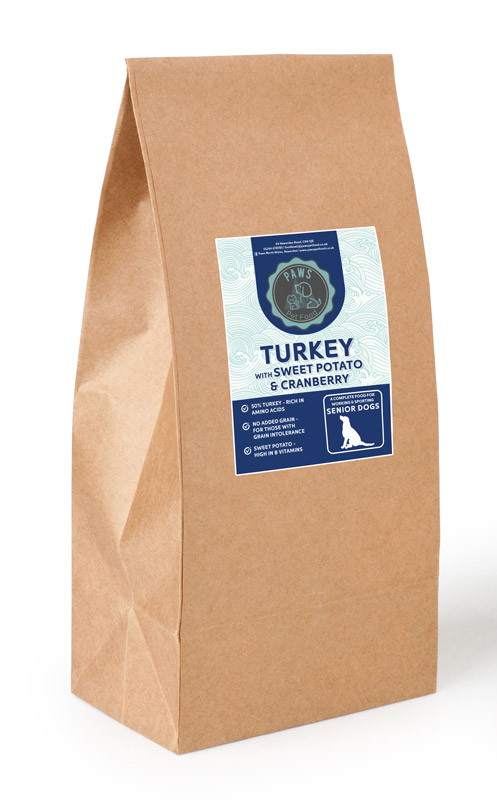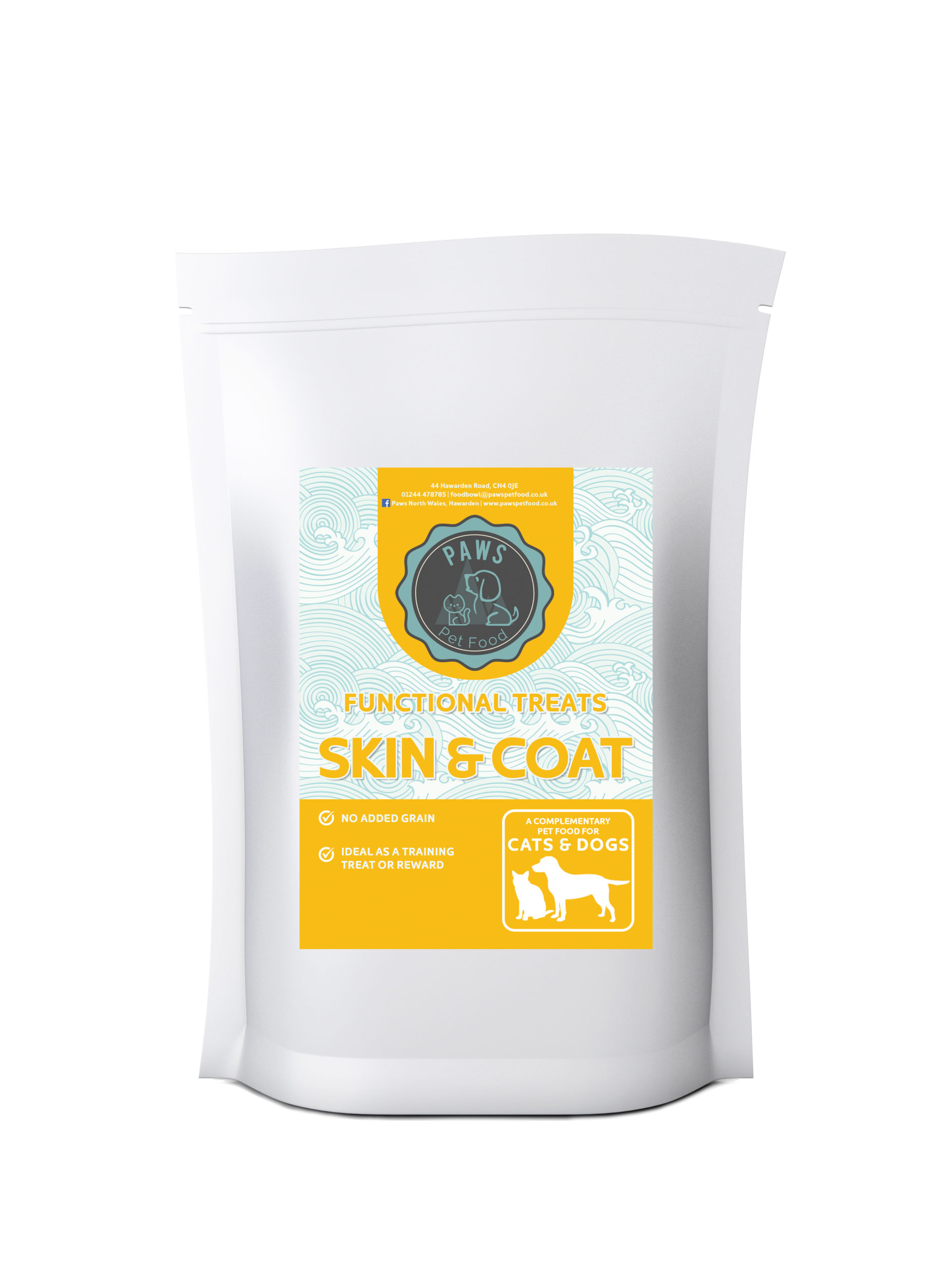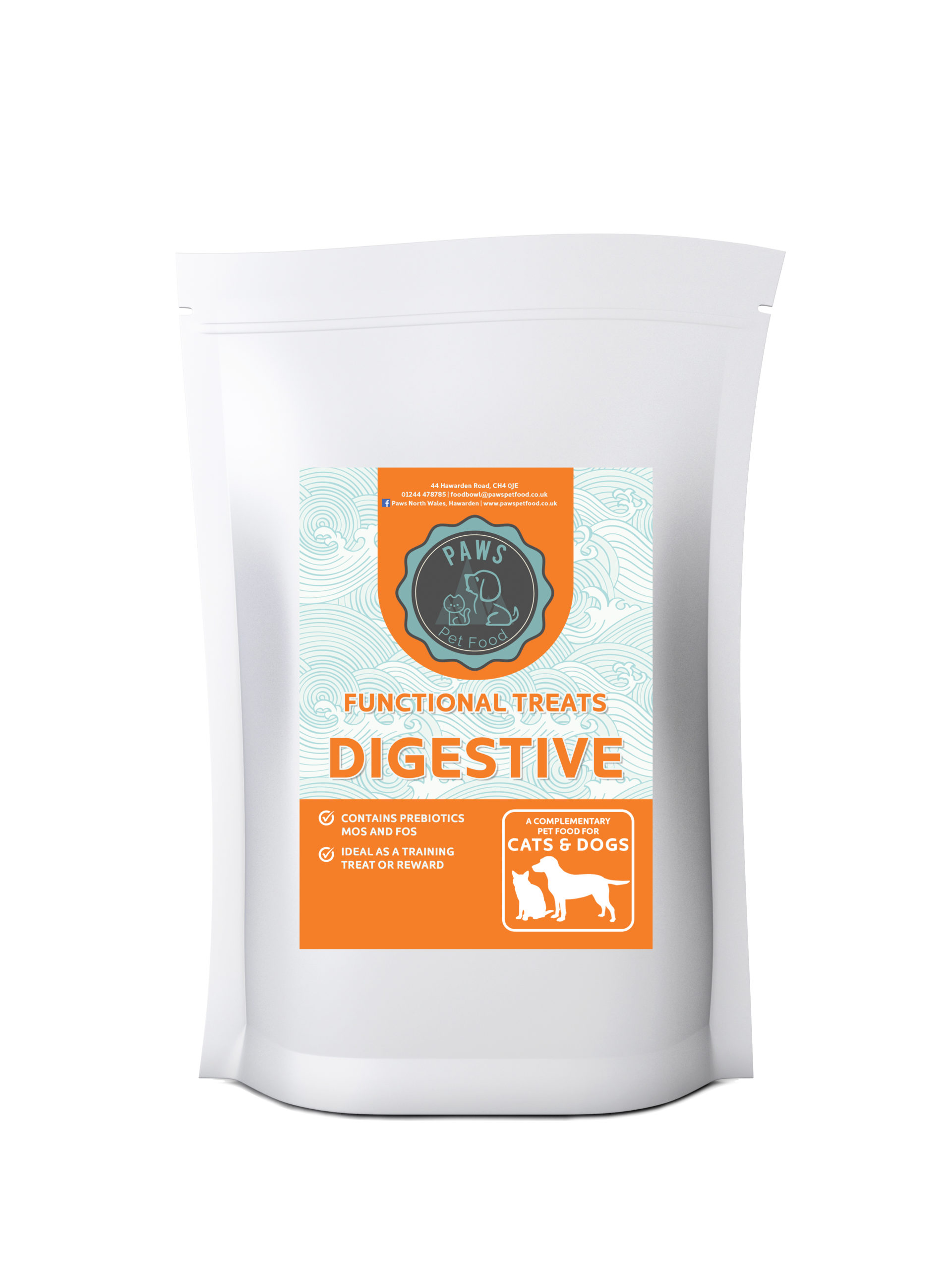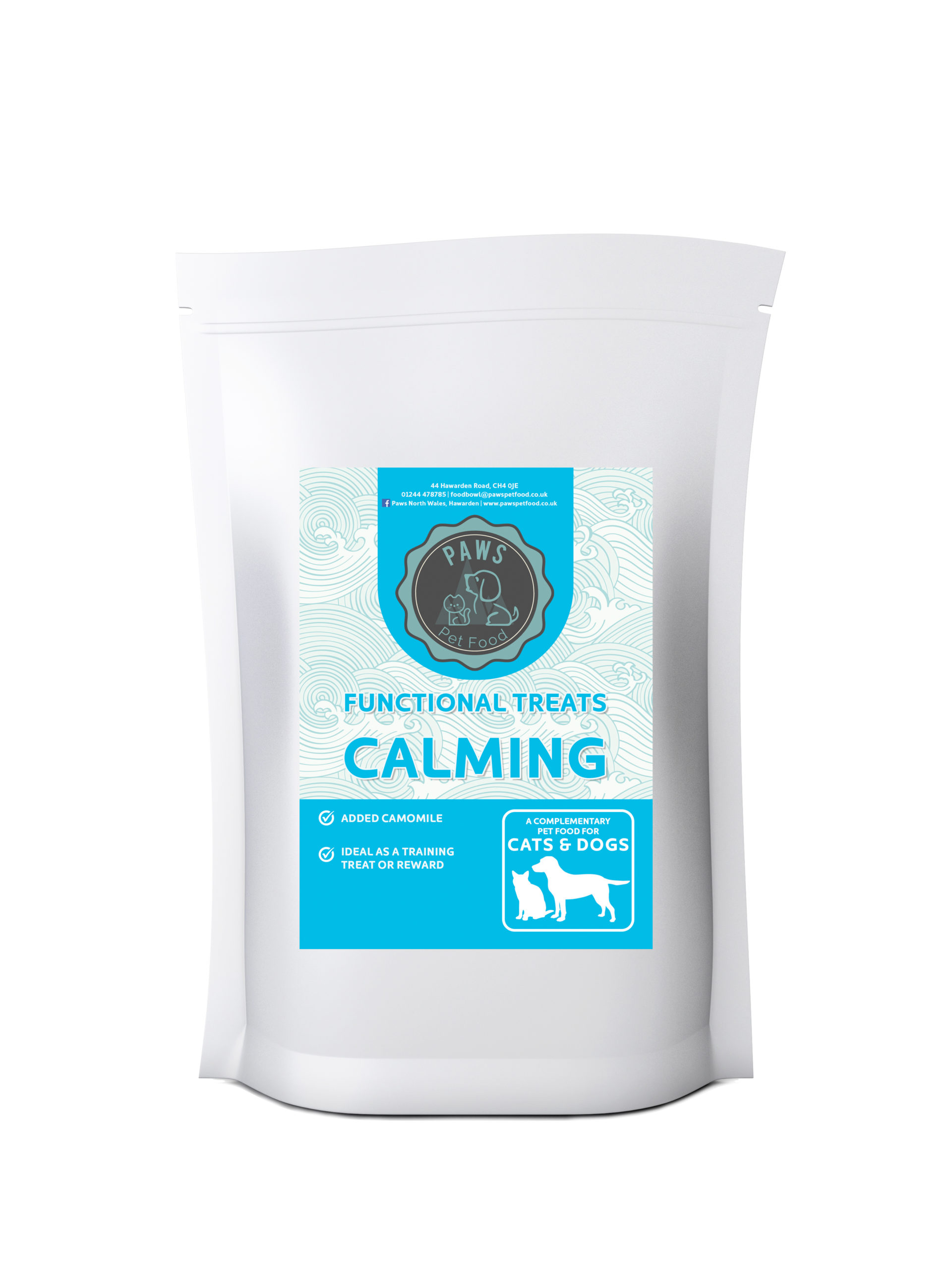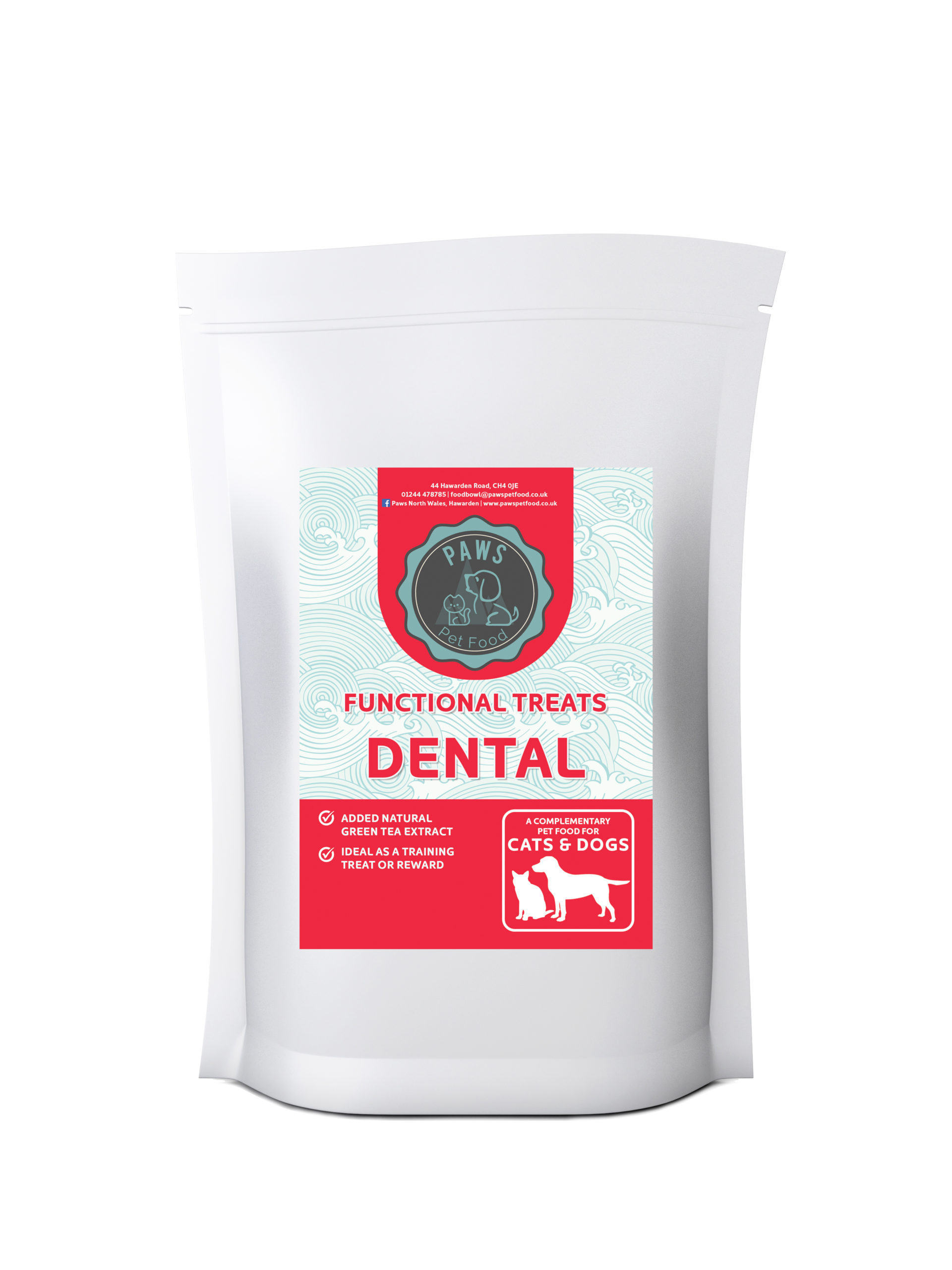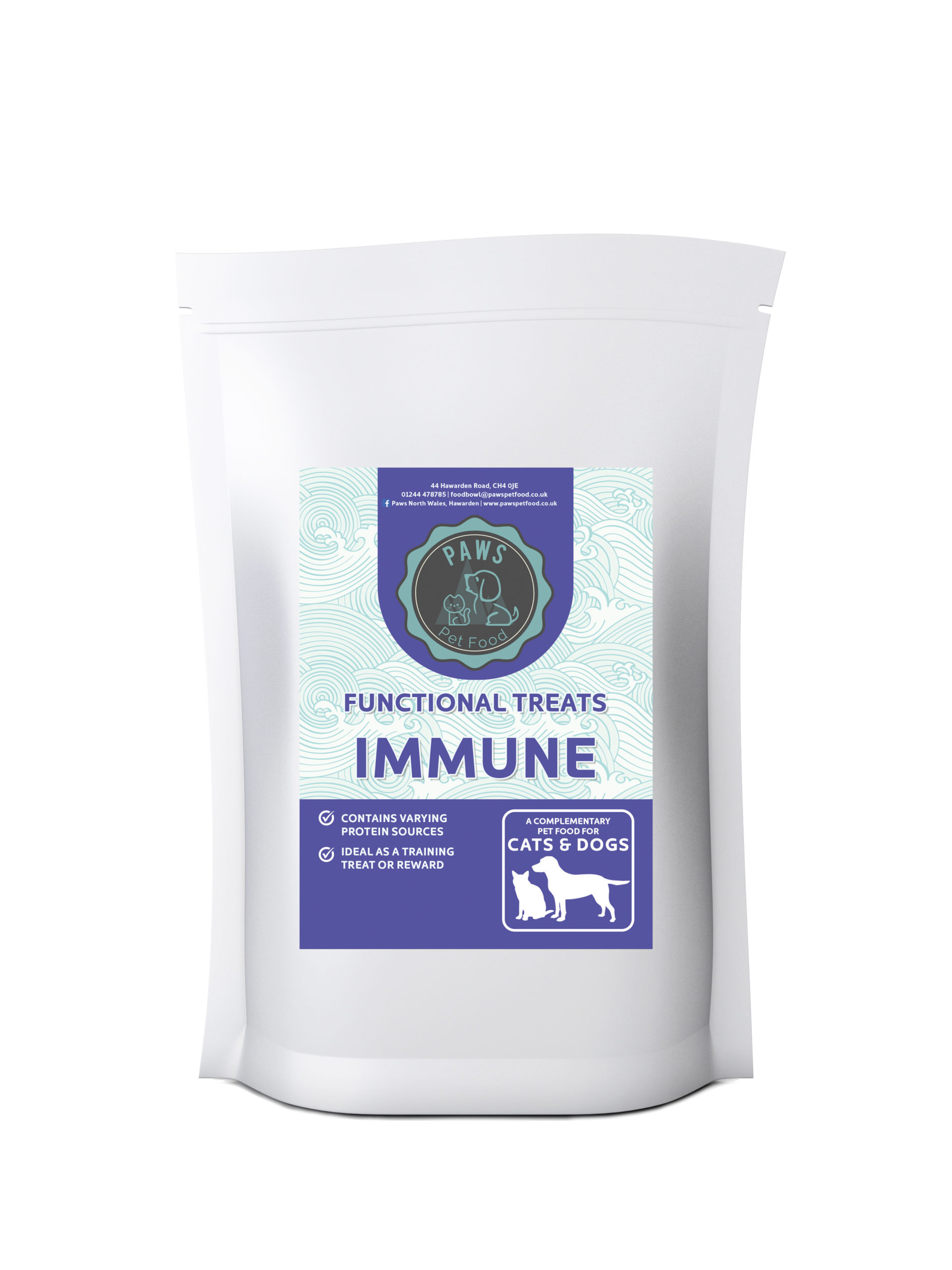How is a Senior Pet Food Different?
Puppy diets are widely accepted within the industry, with clearly defined nutritional guidelines. Yet, in contrast, the nutritional requirements of senior cats and dogs are not strictly defined by FEDIAF, AAFCO or the NRC. Despite our pets spending proportionally more time categorised as ‘senior’ or ‘geriatric’, their nutritional requirements are based on adult parameters. Nevertheless, senior cats and dogs can benefit from nutritional changes tailored to support the physiological changes known to occur within this life stage.
What Should I Feed My Senior Dog?
Senior diets for pet dogs and cats are formulated to address known physiological changes that occur as animals age. For example, activity levels are known to decrease in older dogs. Compared to young adult dogs (1.5 – 4.5 years), dogs aged between 7-9 years were 17% less active, while dogs aged 11-14 years were found to be 42% less active 1. While activity levels decrease with age in dogs, digestive efficiency appears to be maintained 2 – i.e. senior dogs are able to derive energy from their diets as efficiently as younger adult dogs.

Together these factors increase the risk of senior dogs becoming overweight if nutrition is not tailored accordingly. Therefore, a senior dog diet formulated with increased protein and decreased fat content, with an overall decrease in energy content, should help to maintain lean body mass and limit weight gain and fat deposition.
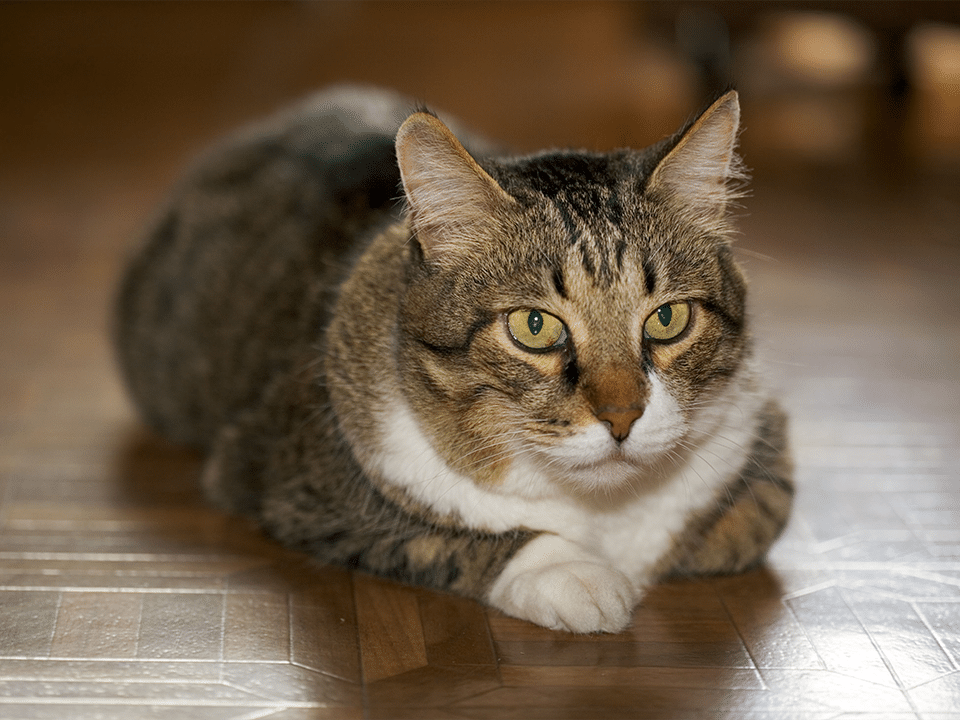
What Should I Feed My Senior Cat?
It is often assumed that senior cats have a tendency towards obesity and that energy intake should be restricted as with senior dogs. There is some evidence to support this, but studies of senior cat populations indicate this view is too simple. In a large colony of research cats, the percentage of body fat did increase markedly in those aged between 7-12 years compared to adult cats (1-7 years) 3. However, a decrease in % body fat was seen in cats over 12 years of age 3.
Similar findings have also been reported in a survey of client-owned cats 4, where more than 60% of ‘mature’ cats (7-10 years) and ‘senior’ cats (11-14 years) were classed as ‘too fat’. This survey did reveal that approx. 40% of geriatric cats (>15 years) were considered ‘too fat’ but also that approximately 40% of geriatric cats were classed as ‘too thin’ – as a result of not just fat loss but also muscle loss. Protein and fat digestibility declines in some cats as they age, with the greatest incidence in cats over 12 years 3. This correlates with the increased occurrence of fat and muscle loss in this age category4.
The above findings point to different nutritional tweaks to best support the needs of ‘senior’ and ‘geriatric’ cats. For senior cats (e.g. 7+ years), high protein, low-fat diets would be best to help maintain lean mass while limiting the deposition of fat and weight gain/obesity. For ‘geriatric’ cats (e.g. 12+ years), an increase in dietary fat combined with high protein would be appropriate to help maintain body weight and lean body mass.
As with all life stages, a fresh source of water should be on offer at all times. Water consumption may noticeably reduce in older pets. Geriatric cats, in particular, are at heightened risk of dehydration 3. Presentation of water alongside food or in multiple locations may increase consumption and prevent dehydration.
When to Start Feeding a Senior Diet?
Like humans, dogs and cats do not age consistently, and chronologic age does not always match physiologic age. The breed is highly influential on the lifespan of dogs, with small breeds expected to outlive their large breed counterparts. This variation in lifespan makes it difficult to establish an exact age for ‘senior’ dogs. Signs of ageing may be noticeable in large breed dogs as early as 5 years old, whereas small breeds may be as late as 10 years. In cats, the breed is less influential, and the ageing process is more gradual. A suggested classification is that cats become ‘senior’ around 7-8 years and progress to ‘geriatric’ from around 12 years 5.
With no one given age point available to mark the need to transition to a senior diet, monitoring individuals is key. Observing behavioural patterns and activity levels can reveal signs of ageing. Is your dog ‘slowing down’ on walks or less interested in play? Changes in activity levels or behaviours may be more difficult to spot in senior cats as cats tend to be more sedentary. Bodyweight and body condition scoring (BCS) evaluation are also key tools for owners to use in line with regular veterinary assessment. Regular monitoring can help owners to identify general signs of age-related changes as well as potential underlying illnesses in early stages 6
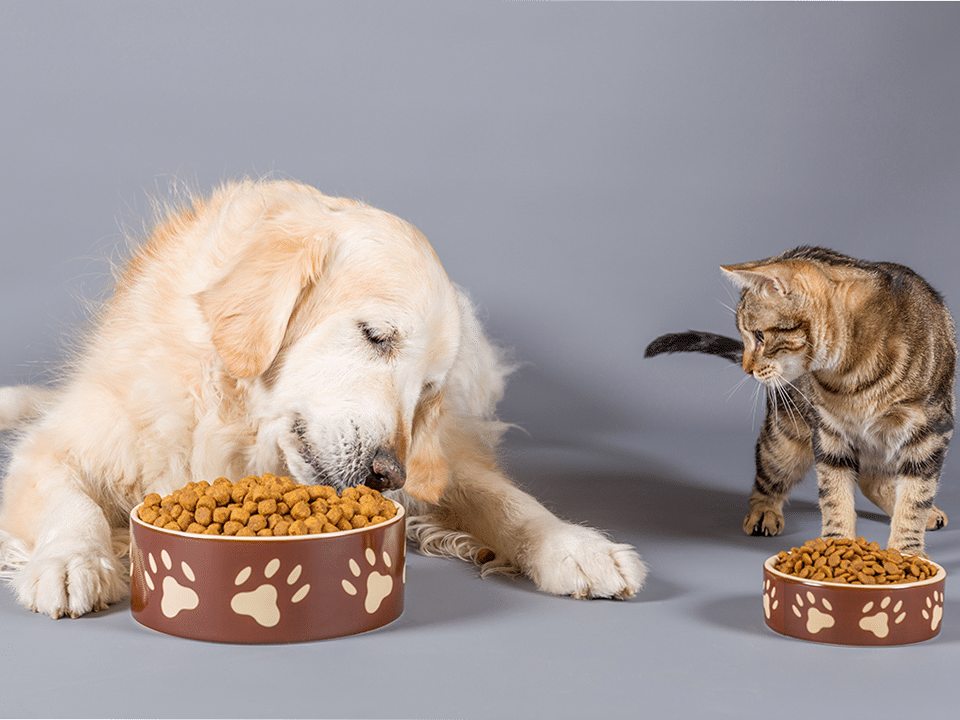
Adapting to senior pet needs does not require drastic change. For example, with a decline in dental health, the consumption of dry food may become more challenging. Presenting the food over a number of small meals and softened with a little warm water may help maintain intake.
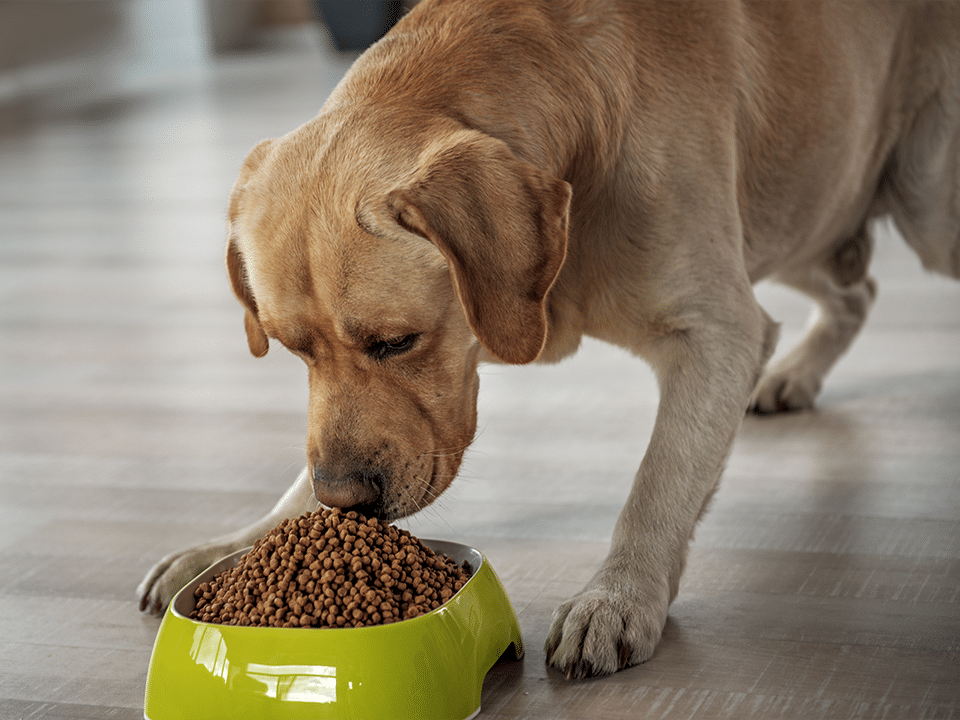
Benefits of Feeding a Senior Diet
With a focus on healthy ageing, a key trend across diets tailored for senior feeding is supplementation with ingredients/nutrients to support joint health. Supplements such as green-lipped mussel (GLM) are known for their anti-inflammatory properties. Studies have found GLM is effective in alleviating swelling and pain in dogs with osteoarthritis7,8. GLM has also been used in addition to more familiar joint supplements such as glucosamine and chondroitin sulphate 9.
Complementing the desire for highly digestible protein sources for senior diets, fish-based diets are a common trend and have the additional benefit of being naturally high in eicosapentaenoic acid (EPA) & docosahexaenoic acid (DHA). These long-chain, polyunsaturated omega-3 fatty acids have been shown to have anti-inflammatory properties 10 and be beneficial for joint health 11.
As in humans, dogs and cats can display a progressive decline in cognitive functioning with age. Damage to brain cells is gradual but irreversible, so nutritional strategies for healthy brain ageing can be of benefit to senior animals. Supplementation of the diet with EPA and DHA together with B vitamins, antioxidants, and arginine has been shown to provide a nutritional approach that can preserve and even improve cognitive function in senior cats and dogs 12,13.
Summary
Nutrition can play a key role in aiding healthy ageing. The varying demands of the senior life stage require the regular review of dietary requirements. At all times, the diet must address the challenges to maintain a lean muscle mass and optimum body fat. However, nutrition can also play a role in reducing the physiological stressors experienced by our senior companion animals. In particular senior diets can aid a reduction in the risk or rate of age-related illnesses. Alongside feeding a senior diet, reasonable adjustment to the environment and routine of an ageing pet can aid welfare. Considerations such as an increased number of feeding stations around the home can aid the maintenance of daily rations.
References
1. Zanghi, B.M., Kerr, W., de Rivera, C., Araujo, J.A. & Milgram, N.W. Effect of age and feeding schedule on diurnal rest/activity rhythms in dogs. J. Vet. Behav. 7(6), 339-347 (2012).
2. Harper, E.J. Changing perspectives on Aging and energy requirements: Aging and digestive function in humans, dogs and cats. J. Nutr. 128, 2632S-2635S (1998).
3. Pérez-Camargo, G. Cat Nutrition: What Is New in the Old? Compend. Contin. Educ. Pract. Vet. 26, 5–10 (2004).
4. Peterson, M.E. & Little, S.E. Cachexia, sarcopenia and other forms of muscle wasting: Common problems of senior and geriatric cats and of cats with endocrine disease. Purina Companion Animal Nutrition Summit, Charleston, South Carolina, May 3-5, 2018; Peterson – Cachexia, Sarcopenia and Other Forms of Muscle Wasting.pdf (purinainstitute.com)
5. Gunn-Moore, D.A. Considering older cats. Compend. Contin. Educ. Pract. Vet. 26, 1-4 (2004).
6. Laflamme, D.P. Nutrition for ageing cats and dogs and the importance of body condition. Vet. Clin. North Am. – Small Anim. Pract. 35, 713-742 (2005).
7. Servet, E., Biourge, V. & Marniquet, P. The Waltham International Nutritional Sciences Symposia: Dietary Intervention Can Improve Clinical Signs in Osteoarthritic Dogs. J. Nutr. 136, 1995S-1997S (2006).
8. Bierer, T.L. & Bui, L. M. Waltham International Symposium: Pet Nutrition Coming of Age Improvement of Arthritic Signs in Dogs Fed Green-Lipped Mussel (Perna canaliculus) 1,2. J. Nutr. 132, 1634S-1636S (2002)
9. Lascelles, B. D. X. et al. Evaluation of a Therapeutic Diet for Feline Degenerative Joint Disease. J. Vet. Intern. Med. 24, 487–495 (2010).
10. Calder, P. Omega-3 fatty acids and inflammatory processes. Nutrients. 2, 355-374 (2010).
11. Roush, J.K., Dodd, C.E., Fritsch, D.A., Allen, T.A., Jewell, D.E., Schoenherr, W.D., Richardson, D.C., Leventhal, P.S. & Hahn, K.A. Multicenter veterinary practice assessment of the effects of omega-3 fatty acids on osteoarthritis in dogs. J. Am. Vet. Med. Assoc. 236, 59-66 (2010).
12. Pan, Y., Kennedy, A. D., Jönsson, T. J. & Milgram, N. W. Cognitive Enhancement in Old Dogs from Dietary Supplementation with a Nutrient Blend Containing Arginine, Antioxidants, B Vitamins and Fish Oil. Br. J. Nutr. 119, 349–358 (2018)
13. Pan, Y. et al. Cognitive Enhancement in Middle-Aged and Old Cats with Dietary Supplementation with a Nutrient Blend Containing Fish Oil, B Vitamins, Antioxidants and Arginine. Br. J. Nutr. 110, 40–49 (2012).
Senior Pet Food
free delivery DPD 2-4 days
Kibble for senior dogs and biscuits for senior cats.
New customers 10% off their first order if you add code pawspetfood at checkout stage.
Love our food? Sign up for a monthly subscription on your product’s page, save money every month and never run out of your pet’s food. Manage your account online; pause or cancel your subscription any time.
Senior Pet Food Articles
Comprehensive Guide: Common Health Concerns in Dogs and How to Address Them
Canine Wellness Guide: Navigating Common Dog Health Concerns and Proactive Care Dogs, like any other living beings, can face a variety of health concerns. It's important for pet owners to be aware of these [...]
Hypoallergenic Pet Food – Separating the Facts from the Hype
What is a food allergy in dogs and cats? Dogs and cats may display adverse reactions to food that can be broadly divided into two groups – immunological (food allergy) and non-immunological. A food [...]
Collagen in Pet Food
What is Collagen? In nature, collagen is a protein found exclusively in animals, especially in the skin, bones and connective tissues of mammals, birds and fish. Strictly speaking, collagen is actually a family of [...]
What dog food should I feed my dog?
A common query from pet owners is “what diet should I feed my dog?”. With so many dog food brands available to choose from, a decision can be hard to make. It is important [...]
Nutrition for Senior Cats and Dogs
How is a Senior Pet Food Different? Puppy diets are widely accepted within the industry, with clearly defined nutritional guidelines. Yet, in contrast, the nutritional requirements of senior cats and dogs are not strictly [...]
Does my pet have an allergy or intolerance?
You may be surprised to learn that food intolerances are a common problem amongst pets. Lower quality pet food, packed with artificial additives, chemicals and known hyper-sensitising ingredients, can often cause disturbances. Feeding a [...]








